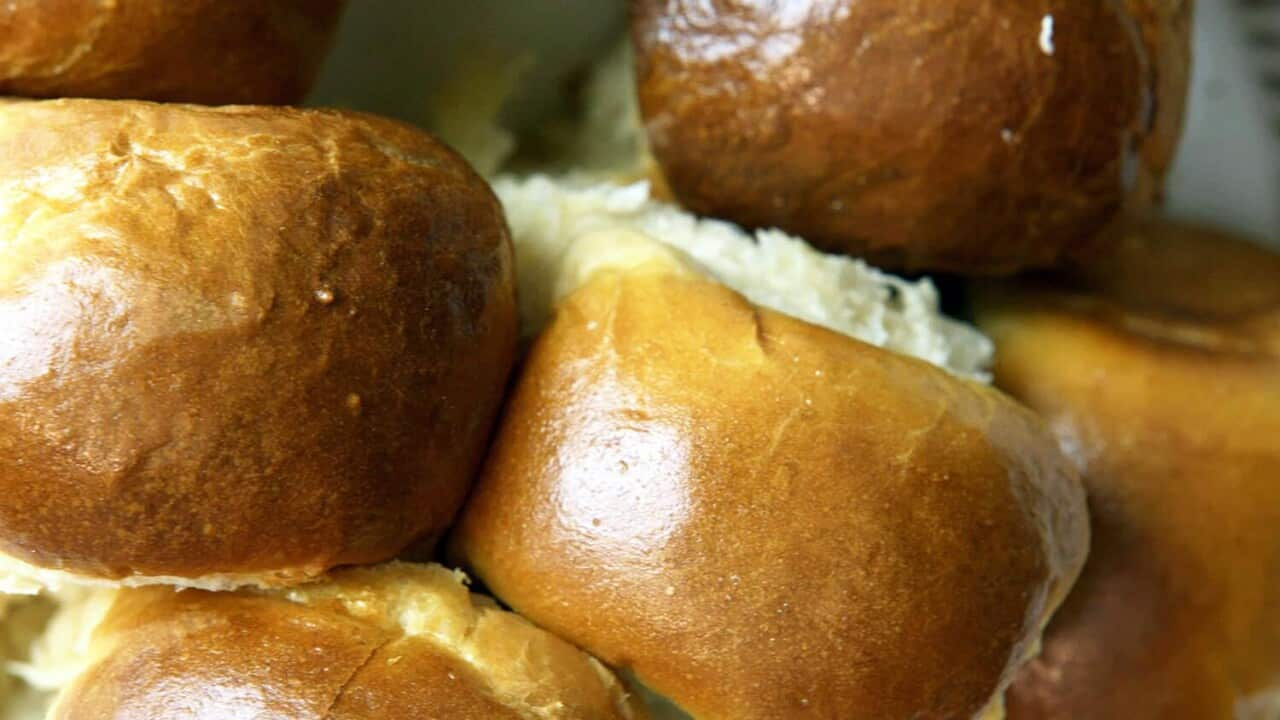When you come across Minako Asai's wagashi at a market in Victoria, you are immediately drawn. Your eyes first catch a glimpse of the bright colours, but as you approach, you notice all the gorgeous shapes and intricate details.
with a long history. Originally served as an accompaniment to matcha and green tea, it's now also eaten for dessert, during celebrations and offered as gifts. It usually only counts a few ingredients like white bean paste, mochi, sugar and adzuki bean paste. The design is not only pretty - it's also inspired by nature through the seasons and art.
For Asai, who grew up in the Japanese city of Nagoya, the sweets are a reminder of her childhood. "There's something nostalgic for me about wagashi. I had it first when I was four and I couldn't forget the taste," she tells SBS Food.
After moving to Australia, she thought it was easy to find many Japanese foods, but not wagashi, so she decided to learn how to make it. "There was a matcha boom in Melbourne a few years ago. Matcha and wagashi go so well together; it was the start of something for us," she explains.
At the beginning of 2018, she launched , a market-based stall specialising in all sorts of wagashi.
There's something nostalgic for me about wagashi. I had it first when I was four and I couldn't forget the taste.
Her range is seasonal, both in terms of flavours and design. In the spring, you'll see pastel colours, flower shapes and cherry-blossom flavour. Summer will bring fruit shapes and flavours like watermelon and passionfruit, while autumn is about leaves and chestnuts, and winter about mandarin and light colours. Popular flavours like strawberry, matcha, yuzu and hojicha are available all year.
The strawberry daifuku is MinnieSweets' bestseller. Daifuku is a simple type of wagashi, made with mochi stuffed with things like sweet bean paste, rockmelon and candied chestnuts.
Nerikiri is another type of wagashi, made with sweet white bean paste and flavoured with ingredients like yuzu, matcha and adzuki beans. They're like tiny pieces of art. "The designs are seasonal, but also depends on how I feel," explains Asai. She shapes them by hand, with the help of tools like sticks and tweezers.
All of MinnieSweets' wagashi are vegan and gluten-free, and Asai sources many ingredients locally, like the adzuki beans and the .
"Everything is made by hand, even the bean paste is made from scratch from dry beans. It takes a long time to make," she says.
While the design of her wagashi is important, Asai says taste comes first: "What's important for me is the taste. I remember memories and recipes from my childhood and I adapt them to what I think tastes best." Her creations are not overly sweet, and those with local ingredients like yuzu and passionfruit are especially delicious.
The MinnieSweets stall can be found at festivals and markets around Melbourne, and Asai teaches nerikiri workshops throughout the year. With two young boys at home and wagashi still relatively unknown in Australia, she's not thinking of opening a shopfront just yet.
"We want Melbourne people to know what wagashi is, so we bring authentic wagashi to the markets to educate people," she explains.
Keep up to date with where MinnieSweets will feature at as well as their upcoming workshop schedule via their and .
DELICIOUS JAPANESE CREATIONS

Try omurice – the dish made of eggs, fried rice and tomato sauce














